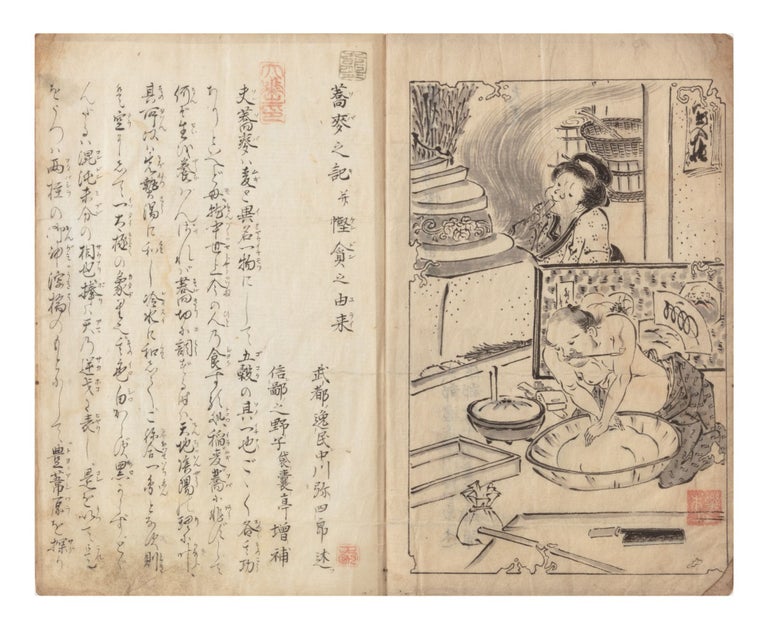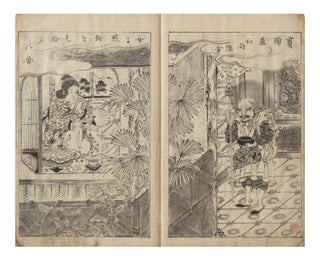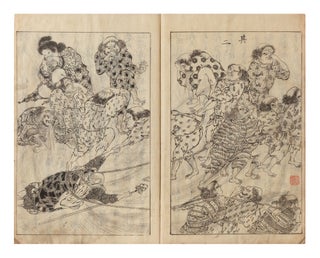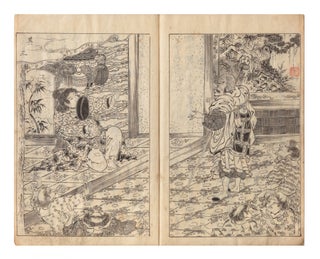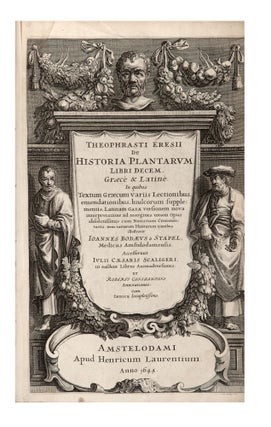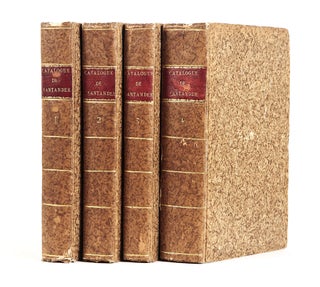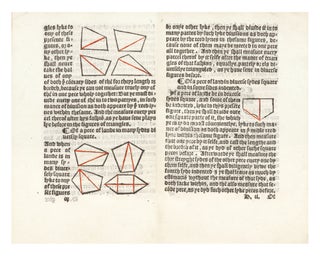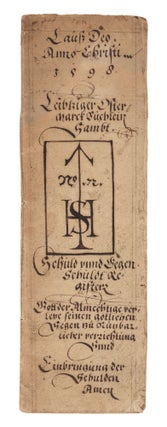Illustrated manuscript on paper, signed “Yashiro Nakagawa” on the first leaf.
One full-page & three double-page brush drawings in black & gray. 12 leaves, mostly folding. 8vo (243 x 160 mm.), orig. hand-drawn pictorial wrappers (a little stained & worn), stitched as issued, label on upper cover “Soba narabini kendon no yurai” (“Notes on Soba & Origins of the Word Kendon). [Japan: at end “copied 1833”].
A fascinating and nicely illustrated manuscript on soba noodles, with a history, recipes, and related stories. The illustrations are finely and expressively drawn.
On the first leaf of text, we learn this was written by Yashiro Nakagawa and edited by Tainotei. The fine full-page drawing at the beginning depicts a man kneading soba dough surrounded by all the ingredients and tools of his profession. Behind him is a woman tending the fire underneath a large boiling pot of water. The beginning text describes the materials used to make various soba noodles.
The text transitions to a moral story of a Chinese woman with kendon (selfish) qualities who does not want to share her food. In the first double-page illustration, she is shown sitting in a Chinese-style room and is approached by a Buddhist priest, Pindola Bharadvaja (or, in Japanese, Bindora osho), one of the Sixteen Arhats, Buddhist practitioners who had taken vows of poverty. Pindola is shown practicing takuhatsu, the act of going house to house asking for food and donations. This illustration is entitled (in trans.): “Pindola asking a selfish woman for a food donation.”
The story shows a deep knowledge of Buddhism and is filled with witty puns, kyoka poems, and parodies of ethical behavior. The next double-page illustration depicts the rotting corpse of Pindola being dragged away by disciples, who are holding their noses because of the odor. The text returns to the subject of soba and tea ceremony in Japan. There is a discussion of the famous Grand Kitano tea ceremony hosted by Hideyoshi in 1587, during which soba noodles were served. The text also states that soba is good for health.
The final double-page illustration shows the woman being punished for her stinginess.
This is followed by a series of kyoka poems about soba. It is stated that the entire text was edited in 1713 and was copied in 1833. This manuscript presents many mysteries, and we have only suggested the possibilities of research.
In very good condition.
Price: $4,500.00
Item ID: 6976

